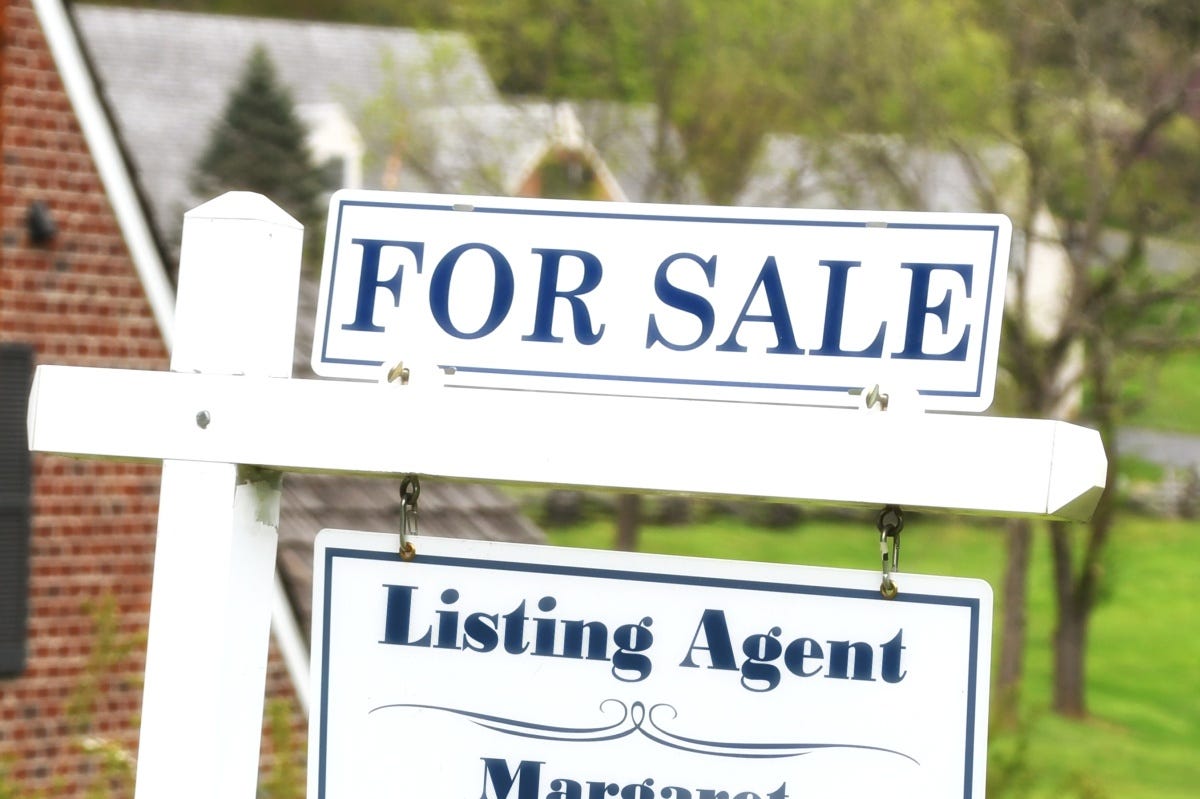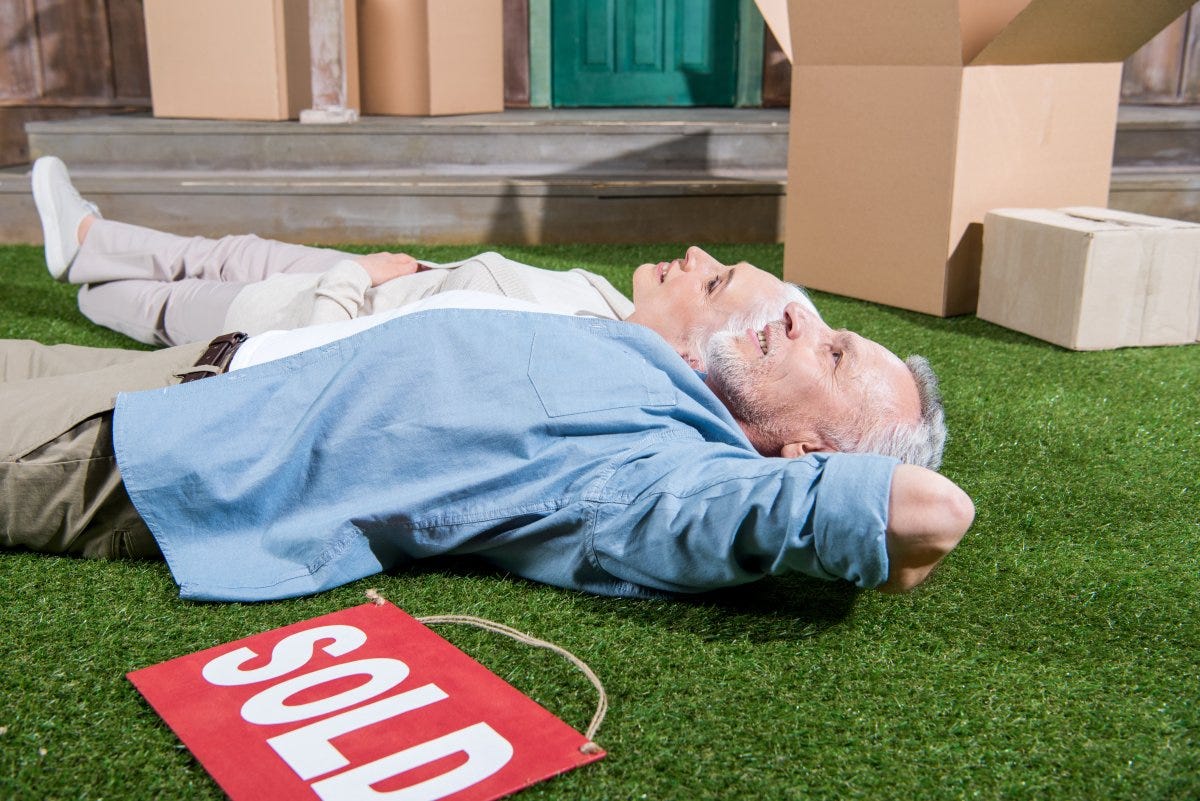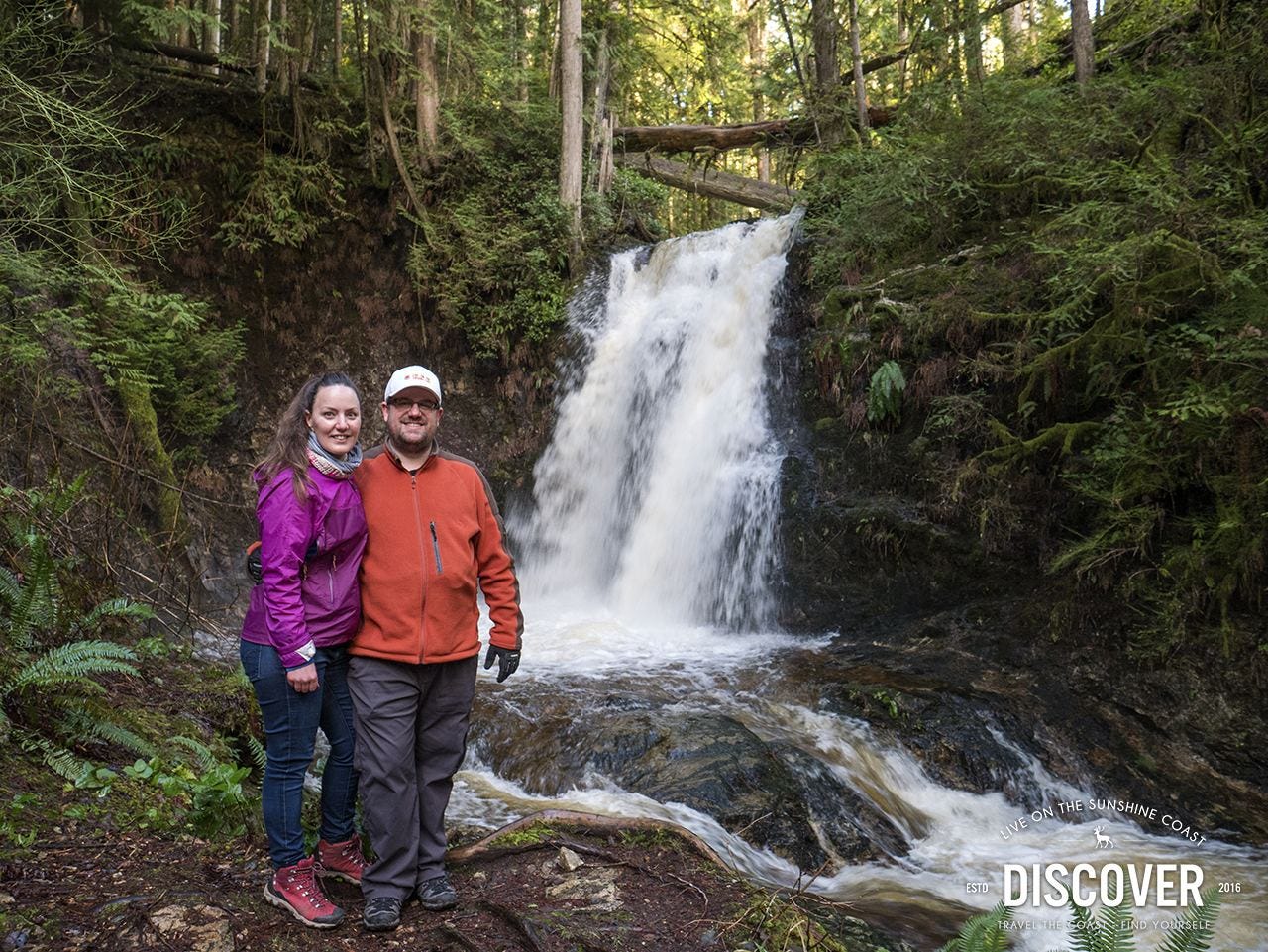Housing crisis on the Sunshine Coast
Rents and prices are exploding in the first half of 2021
This post was written using a transcript from the video at the top of the page. It has been edited for clarity.
PAUL: This video is going to be a bit of a state of the union on the current reality of the housing market on the Sunshine Coast, both if you're buying or if you're looking to rent and kind of what to expect and kind of our thoughts on it.
VAL: So, we have a housing crisis on the Coast. There's a committee put together, all the governments are talking about it. There is a housing crisis. What that means is that property values have skyrocketed in the last year. And there's a lot of shuffling and moving, going around. A lot of investors who have had rental properties are selling into this hot market. Now you have a lot of tenants being displaced and needing to find another place, but then they're not finding another place to rent. There are a lot of tenants looking for places. And then there's just the very high cost of housing because property values have gone up.
PAUL: You've got two things going on, I think, on the Coast. One is that there is the appreciation of the hot market that we're kind of seeing everywhere across North America, right? We're not immune to it here. We're getting it. But I think kind of hidden in that appreciation on the Sunshine Coast is there's also a market correction going on. Five years ago, you could have bought a new or next new condo here for under $400,000 with an ocean view and all the rest. The equivalent property in Vancouver might've been three or four times that. And I think people were looking and thinking, "Man, I'm saving SO much money. It's worth the trade-off to live in a small town." This was even before this big lust for living in a rural, small community hit the world at large. I think that we're seeing that market correction, ad then on top of it, it's extra, extra hot because the market is just hot in general.
VAL: And we don't have the Foreign Buyer's Tax here on the Sunshine Coast, like Vancouver does. And so there's less taxes when you buy here. And so then it is attracting investors to come in and buy in this area.
PAUL: The fact of the matter is, is that if you're coming in and you're buying a house for $800,000, $900,000, or a million dollars, what do you need to charge for?
VAL: Rents have gone up and then tenants are complaining that rents are high. Well, the landlord needs that rent high to cover the mortgage that he has on that property. It's not that they want to charge a zillion dollars for rent. It's, that's what the going rate is at.
PAUL: Not even the going rate. It's just a lot of times when you're getting financing on a rental property, you have to show the bank that it makes money. And For you to be able to buy the property, you need to say, "Yeah, I'll get X amount of rent for it." And that the landlord really has a choice. It's not that the bank is telling you, you've got to charge $3,000 per month. But just the formula that the bank gives you to say whether or not you can buy it dictates that you need to take $3,000 a month. While prices have gone up, rents have gone up, wages haven't gone up for people. Tenants are in a really, really bad spot. They're just getting beat to death in the housing market right now. We're inundated with people moving to the Sunshine Coast from Vancouver that want to live here and hoovering up that rental space. And when they're displaced, like Val said, and they're looking for someplace else, they were paying $1,500 a month someplace. Now all of a sudden it's $2,500 a month, which is a huge jump In a short period of time.
VAL: Especially when they could barely get by on that other rent that they didn't realize was a low at the time. And now it's just astronomical.
Renters getting priced out
PAUL: A lot of times when somebody is moving or relocating to a new area, the thought is, "Oh, I'll rent for a year or two years and see if I like it."
VAL: And that's a good plan.
PAUL: A really good plan. Two things are working against you right now, thought. First, you just can't find anything to rent, period. Even if you've got the money, it's really hard to find something to rent and that if you do end up renting the pace at which the market is moving, you're just pricing yourself out of the market if you don't buy right away, when you come in. Is it going to last? Is the market going to stay hot for another six months? Or a year? Or five years? Who knows what's going to happen? That's the risk you're taking when you come here and say, "OK, I'm going to rent for a year or two years." You're crossing your fingers that the market loses some of its steam or else you're going to be priced out of buying.
VAL: In our complex, for example, there's 20 different units, townhouse units, and standalone homes that are all part of this complex. And in the last few months, five have sold and they basically sold first day on the market or within five days on the market. The only reason they even last five days on the market is because the Realtor will hold onto the property and won't accept offers until five days in and they collect a whole bunch of competing offers. And out of those five units in our complex that sold, three were rentals. Now those three people got displaced and had to go find another place. The one lady was letting me know that she did find another place to rent, but she was one of 40 people who applied for that place. She got it because she's a single, elderly lady. Not that you don't want to rent to families and people with pets and that, but a landlord looks at an older single person and thinks, "This is the least wear and tear on my property."
PAUL: And landlords see guaranteed income. She's probably on a pension, right? A landlord doesn't have have to worry about her losing her job or her income. A landlord can put her in the property and forget about her. So when you've got 40 applicants in front of you, you pick the one that you're most sure is going to pay you and that you feel most comfortable is going to put the least amount of wear and tear on the suite. If you don't find yourself in that category, you have some stiff, stiff competition. And we're even hearing stories about landlords having open houses where crowds of tenants come for group viewings of the rental property. Some of the would-be tenants go to see the property and when they're there, they say to the landlord, "?h, you want $2,000 a month? I'll give you $2,200 a month if you'll rent it to me right now. I'm ready to take it." So even renters are bidding up prices on rents. It is cuckoo crazy time right now, if you're looking to move to the Sunshine Coast.
Wages not reflecting current housing prices
VAL: Even public servants, even if you're even working for the local governments or the town or you're town staff, even they can't find places to live. Employers might have a position coming up where they need to hire new employees but they can't fill that spot because the person they've hired can't find a place to live. So there's even a little bit of problem with getting workers. There are renters that work and have a job but then they have to leave the Sunshine Coast because they've been displaced from their current home and can't find a new place. People are being forced to move off Coast, even if they have a job.
PAUL: I think what fixes this is more properties. If you're going to add property to the market, that means you're going to need to build new structures. You know and I know that you can put up a house pretty quick, but you're not able to do it in days. It's going to take months and years for this market to get caught up. And the way that demand is right now is, I don't know if it'll ever be a balanced market. I don't think you could physically build houses fast enough to meet demand right now.
VAL: Yeah. I don't see it. It's a really tough situation. Even if local governments say say, "OK, build a whole bunch of houses," builders need to bring in the workers. And where are those workers going to stay? You could fill fields with fifth-wheels. Make trailer parks or work camps for these workers. But then there are all the rules and regulation where local governments decide where you can park an RV and where you can live. Local government decides whether they'll zone and approve for those dwellings. There are currently all these rules, but the truth is, I think the district is turning a blind eye right now because they know there's a housing problem.
PAUL: I do think that if the district started cracking down on illegal suites or tiny homes or RVs being where they're not supposed to be, it would be bedlam.
VAL: No, it's more important for them to deal with the housing crisis. So they're not going to tell people you can't stay in the trailer, on this land, on this location. They're not.
PAUL: Not that we're suggesting that you follow that course of action. But I think that's the reality of what's happening right now. Outside of supply, I don't know what fixes it the current market. The opposite not enough supply is a drop in demand. And I don't know what would lead to the drop in demand.
Impact of short-term rentals
VAL: The other factor that might've affected the supply in the market is that you've had homeowners who have had a long-term rental in their secondary suite and they've decided to turn that suite from a long-term rental into an Airbnb. Even before COVID, but still now, property owners just make a lot more money with Airbnb than they do with a long-term renter. So that's displaced a lot of tenants.
PAUL: If we're honest, I think the perception in BC is that with a vacation rental, a landlord will make way more money for way less aggravation. There's a lot of really, really good tenants out there that respect properties and pay rent on time. It's not those stories that would-be landlords hear. Would-be landlords hear stories like, "Oh, this tenant ruined the place," or, "The tenant turned my property into a grow op, " or any one of all these different horror stories. And when landlords hear that - even if that's just one in a hundred properties where that happens - that landlord says, "I can have a short-term vacation rental on my property and I'm going to get twice or three times the rent compared to what it would get with long-term tenants. And I don't have to deal with those problems from the horror stories because it's easy to tell that short-term tenant to leave."
VAL: Being a landlord in BC is hard because the rules are very much skewed towards the tenant. Even if the landlord does want to protect their property, or wants a decent return on investment, or just wants to collect rent without a fight, there's a lot more opportunity for the tenant to string the landlord along and not pay. And then the landlord is stuck with a property and with a tenant that they can't get rid of and they're making money on.
PAUL: I think tenants would probably argue with you that the laws are skewed towards the landlord. This is, I think part of a bigger discussion that we can fix right now. But I do think something that would address the situation would be a tenancy law with more teeth that protected the good tenants from the bad landlords that we all agree exist. But then it also protects the good landlords from the bad tenants. And I don't think that it goes both ways right now. Yes, there are landlords that abuse the system, but there are tenants that abuse the hell out of it, too. That abuse at both extremes has to be removed. And until you do that, investors with money are going to say, "I'll buy an investment property in Alberta or someplace where I don't have to deal with this stress. If somebody doesn't pay rent, I can evict them. If a tenant says they're going to destroy the place, I can evict them." Landlords don't want the hassle of a months' long ordeal to get back control of their own revenue property back. Saying we're going to punish landlords or punish tenants for bad behavior, I think is good. But at the same time, I think we want to say, we're going to reward people for good behavior. And if you want to get supply into the market, there are three ways you could do that...
VAL: Let’s hear it…
3 possible solutions
PAUL: At a federal level, if you're a mom and pop landlord, the federal government could say there's no capital gains tax. If you have one or two or three residential rental properties, a small number of residential units, there's a capital gains exemption.
VAL: A small number, I can understand.
PAUL: You wouldn't get that exemption for an apartment building or something big. It would have to a house, a condo, something like that. In that case, the owner wouldn't have to pay capital gains on that property class. What that allows landlords to do is say, "The property doesn't cashflow, but this might work as an investment because the property could appreciate in value." In essence, removing the capital gains tax from that type of property subsidizes the rent.
VAL: This would work in a scenario where landlords can't get enough rent to cover their expenses due to the initial cost of the property. But maybe the landlord would accept a monthly loss over the short to medium term if he or she believes that the property will appreciate and that appreciation would be tax free.
PAUL: That's right. If it's costing a landlord $500/mth or $1,000/mth to carry the property, this type of capital gains exemption would allow that landlord to say, "OK, if I own this property for three or four years, that's going to cost me $50,000 in negative cashflow. But over that period of time, if property is going to appreciate by $200,000, then maybe that $50,000 is an investment that I want to make."
VAL: The good thing about that is if an investor is to be able to buy a property and put a tenant in it and provide that housing, then that's good. And then that house, that home, doesn't sit not empty. There are some tenants who can't afford to buy, or just don't want to buy, and will likely never buy. There will always be a need for housing for tenants who can't afford to buy a home or don't want to buy one.
PAUL: The next thing that I think could be fixed to add more supply pretty much instantly to the market would be to allow strata owners, condo owners, to rent out their suites. But in BC, stratas can decide that they don't want to allow tenants and that they don't want to have renters in their complex. I think provincially, the government could just undo that with a stroke of the pen. And you would have lot of properties that you could put people into as rentals.
VAL: I dunno if I like this one. It makes sense, but we live in a complex and... But you know, we were tenants. We were great tenants. So to say that we wouldn't have wanted to have us as a neighbor would have been ridiculous.
PAUL: In Edmonton, we were landlords and we had really good tenants. I have no heartache condo owners being able to rent their units out. If you couple that with a stronger tenancy law, as quickly as it takes a majority government - a majority that the NDP has right now - to say that we're going to address this housing crisis with allowing strata owners to rent their suites, I think you could probably add tens-of-thousands of units provincially to the market. If the government decided to do it, they could probably do it overnight.
VAL: Some condo units are just sitting empty because owners aren't allow to rent those units out.
PAUL: Here at a municipal level – well, not just here but municipally in general - but I think that what our town could affect is that there should be a grant for people that want to add a secondary suite or a laneway home or a garage suite or something like that. I think that if I were in charge of the town, I would say that if you're a developer that wants to build in the area, I'm going to put a pretty big tax on your developments. Maybe thousands of dollars per unit. Three, four, $5,000 per unit. The town is going to stick that money into its pocket and they're going to set it aside for affordable housing. Once that fund builds a bit, then a homeowner could say, "I want to build a laneway home," or, "I want to put a secondary suite in my home," and the town would have a program that that homeowner with $10,000 or $20,000 or $40,000 or whatever the amount the town thinks is reasonable to subsidize an affordable rental unit. The town will give that homeowner the money to build the suite but there are strings attached. The strings are that the unit needs to be a residential unit, it needs to be rented at below market rent and the town will dictate what that rate will be. Lastly, if you take that money and you add that secondary suite, then you're committed to having it for 5 years, 10 years, or some other period of time as decided by the town.
VAL: What if the homeowner doesn't keep that space as a rental suite? Would they have to pay back that grant?
PAUL: That's right. To make the numbers real easy, the town says, "We'll give you up to $50,000 to build a laneway house at your home. And it has to be below market rent for five years. If in the third year, you decide to move and sell the home, you would owe the town $20,000." Repayment of the grant could be pro-rated. I don't think that the solution is for a town to take on the responsibility of building apartment buildings. To say that the town is going to build houses and that the town will act as the landlord. I don't think that's the town's job. The town's job is to make sure that the town functions, that's it. And then to create an environment that allows businesses to succeed, people to want to invest, and for landlords to want to build affordable housing. If I was going to ad supply, that's how I would do it. I'm not running for anything. I don't want emails that say, "Oh, you can't do that because of this rule." I'm just spit balling here. That's how I would fix it.
Research and have a plan before moving
VAL: To summarize, if have a goal or a plan to move somewhere, whether it's to BC or anywhere else, this is a reminder to check out the housing situation in that spot that you're considering moving to and to see what kind of planning you have to do. You don't want to just show up and then be surprised and have a moving van full of furniture and then be like, "Ah, I don't have any place to stay." And then you just end up turning around. So definitely plan the housing situation before you start packing and decide to move.
PAUL: Well, that was a nice, depressing video about life on BC's Sunshine Coast. If you have another sad subject, you want us to discuss, leave a note in the comments and we can discuss that in an upcoming episode. And let us know if you have questions about housing market and if you have a thought on how you would fix a housing shortage. It's really pronounced right here but I think people all over the country are hurting with it right now. If you're a homeowner, it's a good time to be a homeowner. If you're a renter, I don't think life's nearly as good.
VAL: That's that. Take care. Guys. We'll see you in the next video.
This post was written using a transcript from the video at the top of the page. It has been edited for clarity.
Connect with us
We're Val and Paul and we're a married couple who live on BC's Sunshine Coast! We moved from Alberta to Gibsons in 2014 and love our life on Canada's West Coast! Subscribe to our YouTube channel and email newsletter and you'll learn what it's like to live in the most beautiful place in Canada.












